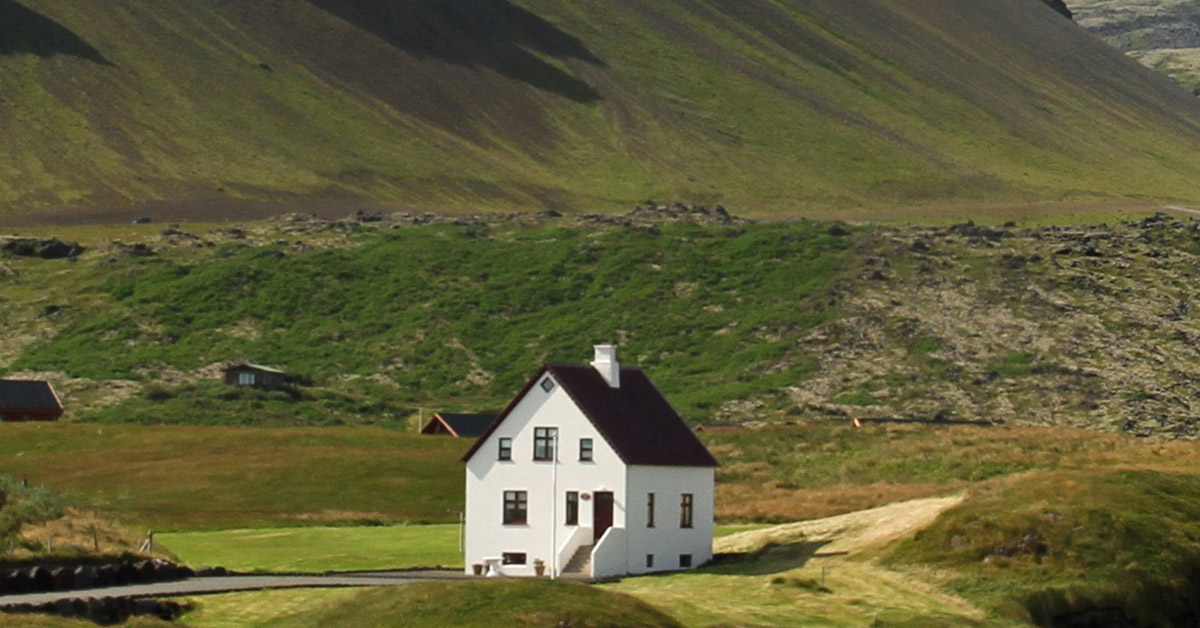

Mike Ballew – Engineer, author, and Eggstack founder.
Eggstack is an independent financial technology company located in Jacksonville, Florida. Our mission is to help you overcome uncertainty about retirement planning and inspire confidence in your financial future.

Do you have substantial equity in your home but worry that you may not have enough savings to enjoy retirement? If so, you are not alone. That is what it means to be house rich and cash poor.
Owning a home is an important part of wealth-building and a cornerstone of The American Dream. However, as we age some youthful aspirations like homeownership begin to feel like an albatross. Years of making mortgage payments and costly repairs takes its toll on our psyche. Our home that once made us beam with pride starts getting the side-eye.
Fortunately, there are several options at our disposal to deal with this matter. Let's look at each one and evaluate the advantages and disadvantages.
When all of the children are grown and gone it's just the two of you knocking around in that big house. Do you really need all that room? Downsizing to a smaller home has many advantages. For one, there is less area to heat and cool so your utility bills are less. Costs such as property taxes and insurance reduce in proportion to the value of your home. The equity banked from downsizing can be used to have fun or supplement your living expenses.
One of the cons of downsizing is the fact that a good portion of the equity goes to the process of buying and selling. To rid yourself of your current home, you have to pay a realtor commission and seller's closing costs. Plus, there are often repairs or upgrades needed to list the home. When you buy your new home, there are closing costs and moving expenses to pay.
Another possible solution to being house rich and cash poor is a reverse mortgage. If you are 62 years of age or older, you are eligible for a reverse mortgage. A reverse mortgage allows you to draw down the equity in your home and use it as you wish. Proceeds from a reverse mortgage are not taxed and they have no effect on Social Security or Medicare benefits. If you live longer than expected or market conditions change, the bank absorbs the loss. No debt is passed on to your heirs.
The primary disadvantage of a reverse mortgage is that you are essentially married you to your home, as in until death do us part. Forget about moving to a new location or chasing your children around the country to be near your grandkids. The steep upfront costs of a reverse mortgage make it financially unpalatable to sell your home and move.
We have just touched the surface here, if you are interested in learning more, check out our article entitled How Does a Reverse Mortgage Work?
If you want to really shake things up, you could turn your home into an investment property. Move into an apartment or RV and lease your home. Or, you could turn it into a vacation rental like an Airbnb. You may end up with more headaches than you know what to do with, but there will never be a dull moment.
Most retirees are looking to offload responsibility, not take on more. However, as crazy as this idea sounds it's actually the most likely to pass on the full value of your home to your heirs. If this piques your interest, check out our articles entitled Investment Property and Top Considerations for Becoming an Airbnb Host.
Life is funny. When we start out, we can't wait to quit renting and buy a house. As we get older, the thought of leaving homeownership behind and renting feels like a breath of fresh air. Let somebody else deal with all the hassles. When something breaks, you just make a call.
Actually, that is more fantasy than reality. Unless you time it just right, renting in retirement is a great way to outlive your savings and go broke. Monthly rent payments are significantly higher than paying insurance and property tax on a paid-off home. Plus, when you rent you are at the mercy of the landlord who can raise your rent or kick you to the curb anytime they please. Unless you rent a house, you have to lug groceries and trash up and down stairs in the rain and snow.
There is no doggy door or fenced-in backyard so every time nature calls you have to take Fido for a walk – to an unpleasant patch of grass where everyone else walks their dog. If that's not enough, you have to listen to your neighbors fight and make up (think about it). Retirees who yearn to ditch their home and rent have simply forgotten what it's like to rent.
A better way to deal with homeowner burnout and age-related issues is to stay in your home and pay people to do things for you. Almost anything you can imagine can be outsourced: lawn mowing, snow blowing, painting, maid service, pressure washing, pest control, repairs and maintenance. Think you can't afford it? Except for maid service, you pay for all that when you rent an apartment or condo, plus profit. It's built in to the monthly rent.
You can preempt unpleasant emergencies by being proactive about maintenance. Every 15 years replace your home's roof, water heater, and heating & cooling system. Sound too expensive? It does, but if you break it down into its monthly equivalent it really isn't. A roof is $15,000, a water heater is $1,000, and a new heating & cooling system is $7,000. That's $23,000*. Set aside $128 each month ($23,000/15 years/12 months) and you will have the money when you need it.
Finally, consider this: if you are house rich and cash poor, at least you are rich in something. That's a first world problem that much of the rest of the world would be happy to have.
*Based on estimated costs, obtain quotes in your area for an accurate assessment.
Photo credit: Pixabay Eggstack News will never post an article influenced by an outside company or advertiser. Our mission is to help you overcome uncertainty about retirement planning and inspire confidence in your financial future.